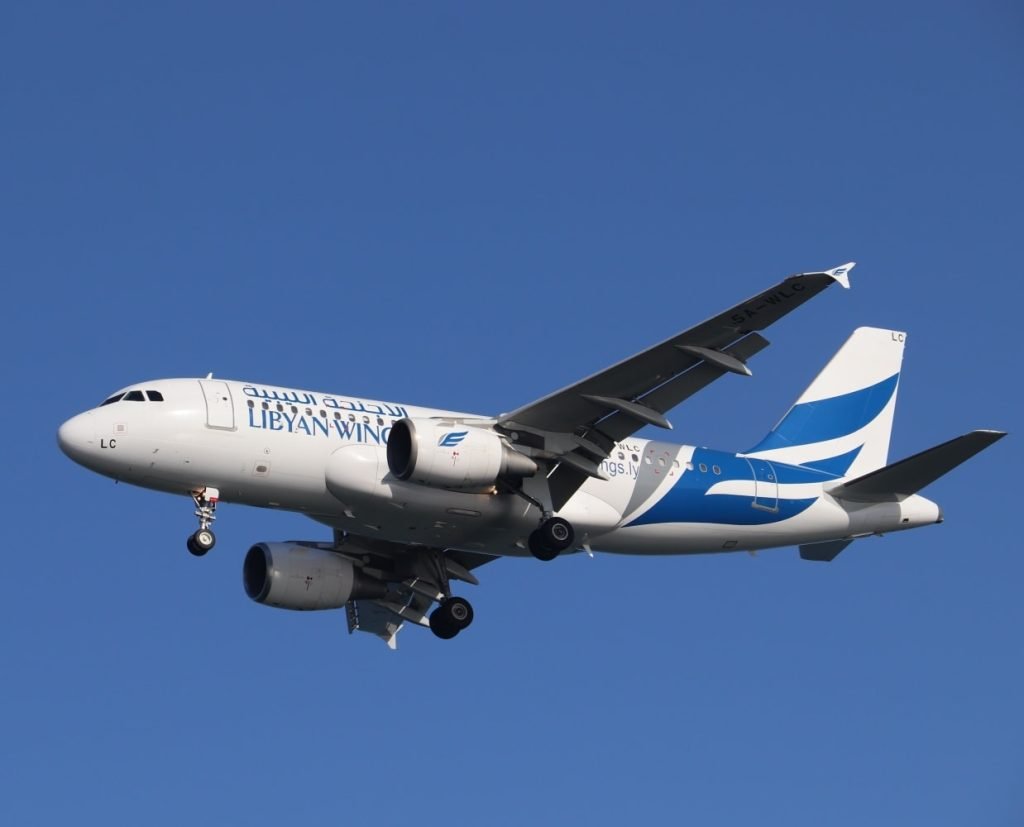Entering a new market can be challenging, especially in a dynamic environment like Libya. At Qabas, we navigate these complexities with our deep local expertise and strategic insights. We understand the unique opportunities and obstacles, ensuring your business thrives in Libya’s evolving landscape.
As a Libya-based leader, we’re committed to setting industry benchmarks and delivering innovative solutions tailored to your market entry needs. Our dedicated team leverages extensive knowledge and proven strategies to guide you through every step, from market analysis to regulatory compliance. Partner with Qabas and benefit from our excellence in facilitating successful market entries, empowering your business to achieve sustainable growth in Libya.

Market Overview
Economic Landscape
Libya’s economy relies heavily on its substantial oil reserves, which represented over 95% of the country’s export earnings and more than 75% of government revenue between 2015 and 2022. The oil and gas sector serves as the cornerstone of Libya’s financial landscape, driving significant investment and economic growth. Our deep expertise in this sector allows us to navigate the complexities of Libya’s oil market effectively, ensuring robust support for businesses seeking to enter or expand within this vital industry.
Strategic Location
Strategically positioned at the intersection of Europe and Africa, Libya offers unparalleled access to two major continents. This geographical advantage facilitates streamlined trade and commerce, enabling efficient distribution of goods and services across diverse markets. Our local presence and comprehensive understanding of Libya’s strategic location empower us to provide tailored solutions that leverage these logistical benefits, enhancing our clients’ market entry strategies.
Emerging Sectors
Telecommunications
The telecommunications industry in Libya is undergoing rapid expansion, driven by collaborations between local firms and global technology companies. This growth is enhancing connectivity and digital services across the country, presenting substantial investment opportunities. We specialise in supporting ventures within the telecommunications sector, offering expertise in market analysis, regulatory compliance, and strategic partnerships to capitalize on the burgeoning digital landscape.
Entry Strategies
Entering the Libyan market requires strategic planning and informed decision-making. We offer tailored entry strategies to navigate the unique landscape of Libya effectively.
Direct Investment
Direct investment involves establishing a physical presence in Libya through subsidiaries or branches. This strategy allows full control over operations and facilitates deeper market penetration. Since the early 2000s, Libya has attracted foreign direct investment (FDI) primarily in the oil and gas sector, contributing significantly to its GDP. Our team provides expertise in identifying optimal investment opportunities, managing regulatory compliance, and ensuring ethical business practices. We assist in site selection, legal structuring, and securing necessary permits, leveraging our local knowledge to mitigate risks and enhance investment outcomes.
Joint Ventures
Joint ventures entail partnering with local businesses to enter the Libyan market. This approach combines international expertise with local knowledge, fostering mutual growth and resource sharing. Libya’s business environment encourages joint ventures, particularly in emerging sectors like telecommunications and infrastructure development. Our services include identifying reliable local partners, negotiating partnership terms, and facilitating seamless collaboration. We ensure that joint ventures comply with Libyan regulations and align with your strategic objectives. By leveraging our established network and reputation, we help build strong, sustainable partnerships that drive long-term success in the Libyan market.

Legal And Regulatory Environment
Navigating Libya’s legal and regulatory framework is crucial for successful market entry. Our expertise ensures compliance and smooth establishment in the Libyan market.
Business Licensing
Foreign companies must adhere to specific licensing requirements to operate in Libya. We facilitate the selection and registration of appropriate business entities, ensuring compliance with local laws.
- Business Entities:
- Branch Office: Allows full operational control with necessary registration. Suitable for companies seeking direct market presence.
- Representative Office: Requires a minimum investment of 150,000 Libyan Dinar. It involves minimal paperwork but restricts profit-making activities.
- Mushtaraka Company: Enables foreign ownership up to 65%, with a minimum investment of 1 million Libyan Dinar. This joint venture promotes local partnerships.
- Subsidiary: A separate legal entity registered in Libya, providing limited liability and operational autonomy.
| Business Entity | Foreign Ownership | Minimum Investment (Libyan Dinar) | Profit Activities Allowed |
|---|---|---|---|
| Branch Office | 100% | Varies based on business type | Yes |
| Representative Office | 100% | 150,000 | No |
| Mushtaraka Company | Up to 65% | 1,000,000 | Yes |
| Subsidiary | 100% or Limited | Varies | Yes |
We assist in preparing the necessary documentation, liaising with regulatory authorities, and ensuring timely registration of your business entity.
Trade Regulations
Understanding Libya’s trade regulations is essential for effective import and export operations. Our services ensure adherence to all relevant laws and standards.
- Import Regulations:
- Customs Duties: Vary based on product category, typically ranging from 5% to 20%.
- Import Licensing: Certain goods require specific licenses or permits before entry.
- Standards Compliance: Products must meet Libyan standards for quality and safety.
- Export Regulations:
- Export Duties: Applicable to specific commodities, particularly in the oil and gas sector.
- Documentation: Accurate and complete documentation is mandatory for smooth export processes.
- Trade Agreements: Familiarity with existing trade agreements facilitates better market access.
- Customs Procedures:
- Clearance Process: Efficient clearance requires thorough knowledge of customs procedures and regulations.
- Tariff Classification: Proper classification of goods ensures correct duty assessment and compliance.
We provide comprehensive support in navigating customs procedures, obtaining necessary licenses, and ensuring that all trade activities comply with Libyan regulations.

Economic Factors
Libya’s economic landscape presents both opportunities and challenges for market entrants. Understanding the prevailing economic factors is crucial for successful business operations.
Market Trends
Libya has been experiencing gradual economic diversification since 2015, reducing its reliance on oil and gas. Key trends include:
- Construction Sector Growth: The construction industry expanded by 15% annually between 2018 and 2022, driven by infrastructure development and urbanization projects.
- Telecommunications Expansion: Internet penetration reached 45% in 2023, with mobile subscriptions exceeding 10 million, reflecting increased demand for digital services.
- Renewable Energy Investments: Investments in solar and wind energy projects grew by 20% annually from 2020 to 2023, supporting sustainable energy initiatives.
- Agriculture Development: Agricultural output increased by 10% between 2019 and 2022, focusing on crops such as olives, dates, and cereals to enhance food security.
- Fisheries Growth: The fisheries sector saw a 12% rise in production from 2020 to 2023, leveraging Libya’s extensive Mediterranean coastline.
These trends indicate a shift towards a more diversified economy, creating new avenues for business entry and investment.
Consumer Behaviour
Understanding consumer behaviour in Libya is essential for tailoring products and services to local preferences. Key insights include:
- Youth Demographics: Approximately 60% of the population is under 30 years old, driving demand for technology, education, and entertainment products.
- Digital Adoption: With a 50% increase in online shopping between 2020 and 2023, consumers prefer e-commerce platforms for convenience and variety.
- Brand Loyalty: Libyan consumers show high brand loyalty, valuing quality and reliability over price, which influences purchasing decisions.
- Payment Preferences: Cash remains the dominant payment method, accounting for 70% of transactions, though digital payment adoption is growing.
- Cultural Influences: Shopping behaviours are influenced by cultural norms, such as a preference for family-owned businesses and local brands.
These behavioural patterns highlight the importance of cultural sensitivity and adaptability in marketing strategies for successful market entry.
Challenges And Opportunities
Entering the Libyan market presents a mix of challenges and opportunities that require strategic navigation. We leverage our deep understanding of these dynamics to guide businesses effectively.
Challenges
- Political Instability: Libya has experienced ongoing political unrest since 2011, impacting business operations and investor confidence. Navigating the fluctuating political landscape necessitates robust risk management strategies.
- Regulatory Complexity: The legal framework in Libya can be intricate, with varying licensing requirements for different business entities. Ensuring compliance with these regulations is essential to avoid legal setbacks.
- Infrastructure Limitations: While infrastructure development is growing, certain regions still lack adequate facilities, posing logistical challenges for businesses. Addressing these gaps requires innovative solutions and local partnerships.
- Security Concerns: Security issues in specific areas may pose risks to personnel and assets. Implementing comprehensive security measures is critical for maintaining operational integrity.
- Access to Financing: Limited access to financial resources and banking services can hinder business expansion. Developing strong financial strategies and local relationships can mitigate these constraints.
Opportunities
Libya’s evolving economy offers substantial opportunities across multiple sectors, driven by strategic initiatives and market demands.
- Oil and Gas: As the cornerstone of Libya’s economy, the oil and gas sector continues to attract foreign investment due to its abundant reserves. In 2022, oil exports accounted for approximately 95% of total export earnings.
- Construction: Government-led infrastructure projects drive demand in the construction sector. Investments in residential, commercial, and industrial developments present significant growth potential.
- Telecommunications: The rapid expansion of digital services and enhanced connectivity create avenues for investment in telecommunications. Partnerships with local firms facilitate market entry and technological advancement.
- Agriculture: Efforts to modernize agricultural practices and improve infrastructure support the growth of this sector. Increased domestic demand for food products offers profitable investment opportunities.
- Healthcare: Rising healthcare needs call for investments in medical facilities, pharmaceuticals, and health services. Expanding the healthcare infrastructure aligns with national development goals.
Strategic Approaches
To overcome challenges and capitalize on opportunities, we implement tailored strategies that include:
- Market Analysis: Conducting thorough market research to identify key trends and viable sectors for investment.
- Regulatory Compliance: Ensuring adherence to Libyan laws and regulations through expert guidance and documentation support.
- Local Partnerships: Establishing joint ventures with reliable local partners to enhance market presence and operational efficiency.
- Risk Management: Developing comprehensive risk mitigation plans to address political, security, and financial uncertainties.
- Sustainable Practices: Promoting ethical business practices and sustainable development to build long-term success and trust in the Libyan market.
By addressing these challenges and leveraging available opportunities, we support businesses in achieving sustainable growth and a strong foothold in Libya.

Libya Market Entry: Conclusion
Entering the Libyan market presents unique challenges and exciting opportunities. We understand the complexities and leverage our expertise to guide businesses every step of the way. Our tailored strategies ensure that you navigate regulatory landscapes smoothly and establish strong local partnerships.
With Libya’s strategic location and evolving economic sectors, the potential for growth is substantial. We are committed to helping you capitalize on these advantages, driving sustainable success in the region. Trust us to provide the insights and support needed to make your market entry in Libya a thriving venture.
Frequently Asked Questions
What are the main challenges of entering the Libyan market?
Entering the Libyan market presents challenges such as political instability, regulatory complexity, infrastructure limitations, security concerns, and limited access to financing. Navigating these issues requires thorough market analysis, understanding local regulations, and implementing effective risk management strategies. Partnering with experienced firms like Qabas can help mitigate these challenges by providing tailored solutions and local expertise, ensuring a smoother market entry and sustainable business operations in Libya.
What opportunities does the Libyan market offer for businesses?
Libya offers significant opportunities in sectors like oil and gas, construction, telecommunications, agriculture, and healthcare. The country’s substantial oil reserves remain a cornerstone of its economy, while emerging sectors such as telecommunications are experiencing rapid growth. Additionally, Libya’s strategic location between Europe and Africa facilitates efficient trade and distribution. Businesses can leverage these opportunities by partnering with knowledgeable firms like Qabas to develop strategies that align with market demands and drive sustainable growth.
How does Qabas support businesses entering the Libyan market?
Qabas provides comprehensive support for businesses entering Libya by offering market analysis, regulatory compliance assistance, and strategic partnership development. Their dedicated team leverages extensive local knowledge and proven strategies to navigate the complexities of the Libyan market. Qabas assists with identifying opportunities, managing regulatory requirements, and fostering sustainable partnerships, enabling businesses to establish a strong foothold and achieve long-term success in Libya’s dynamic economic landscape.
Why is the oil and gas sector important in Libya’s economy?
The oil and gas sector is vital to Libya’s economy, accounting for over 95% of export earnings and more than 75% of government revenue between 2015 and 2022. This sector serves as the cornerstone of economic stability and growth, driving investment and development across the country. Qabas’s deep expertise in oil and gas enables businesses to effectively navigate the complexities of this industry, ensuring compliance and strategic positioning to capitalise on Libya’s substantial energy resources.
How does Libya’s strategic location benefit businesses?
Libya’s strategic location at the crossroads of Europe and Africa offers significant advantages for trade and commerce. This positioning allows for efficient distribution of goods and services across two continents, enhancing market reach and reducing transportation costs. Businesses can utilise Libya as a gateway to regional markets, leveraging its infrastructure and connectivity. Qabas helps clients develop market entry strategies that take full advantage of Libya’s geographical benefits, facilitating smoother operations and expanded commercial opportunities.
What emerging sectors show potential in Libya?
Emerging sectors in Libya with high potential include telecommunications, renewable energy, construction, agriculture, and fisheries. Telecommunications, in particular, is experiencing rapid growth through collaborations with global technology firms. Renewable energy initiatives are also gaining traction as Libya seeks to diversify its economy. These sectors present ample opportunities for investment and expansion. Qabas specialises in these areas, providing expertise in market analysis, regulatory compliance, and strategic partnerships to help businesses thrive in Libya’s evolving economic landscape.
What entry strategies are recommended for the Libyan market?
Effective entry strategies for the Libyan market include direct investment and joint ventures. Strategic planning and informed decision-making are crucial for success. Direct investment allows businesses to establish a presence and control operations, while joint ventures offer local partnerships that can navigate regulatory and cultural landscapes. Qabas assists companies in selecting the most suitable strategy by identifying opportunities, managing compliance, and fostering sustainable partnerships, ensuring a successful and resilient market entry.
What is the legal and regulatory environment like in Libya for foreign companies?
Libya’s legal and regulatory environment requires strict compliance for successful market entry. Foreign companies must navigate specific licensing requirements and trade regulations that can be complex and challenging. Understanding and adhering to these regulations is essential to avoid legal issues and ensure smooth operations. Qabas provides comprehensive support in this area, helping businesses obtain necessary licenses, comply with local laws, and manage regulatory complexities, thereby facilitating a hassle-free entry into the Libyan market.
How is Libya’s economy diversifying beyond oil?
Since 2015, Libya has been gradually diversifying its economy, with growth in sectors such as construction, telecommunications, renewable energy, agriculture, and fisheries. This diversification aims to reduce dependence on oil and create a more resilient economic foundation. By investing in these emerging industries, Libya seeks to stimulate sustainable growth and development. Qabas supports businesses in these sectors by offering market insights, strategic planning, and regulatory guidance, helping them capitalize on Libya’s broader economic opportunities.
How does understanding consumer behaviour impact business success in Libya?
Understanding consumer behaviour is crucial for tailoring products and services to meet local preferences in Libya. Insights into the youthful demographic and cultural influences on purchasing decisions enable businesses to develop strategies that resonate with consumers. By catering to the specific needs and preferences of the Libyan market, companies can enhance customer satisfaction and loyalty. Qabas provides valuable market research and consumer analysis, helping businesses to align their offerings with local demands and achieve greater success in Libya.




